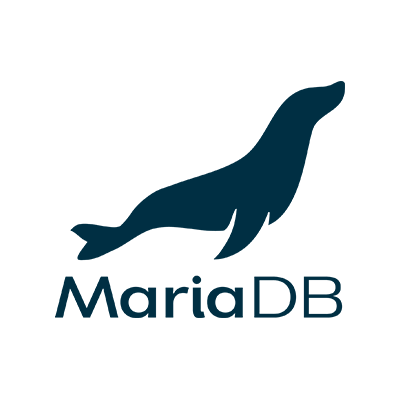MariaDB: A Deep Dive into the Open Source Database and Its Future

In the dynamic world of open-source software, one name stands out for both its pioneering innovations and turbulent journey: MariaDB. Once a promising alternative to MySQL, MariaDB has faced both triumphs and challenges in the fiercely competitive database market. Today, under new leadership and backed by private equity, MariaDB finds itself at a crucial inflection point, one that could shape its future in a landscape dominated by tech giants, cloud providers, and a growing appetite for database solutions that are both powerful and flexible.
This article takes an in-depth look at MariaDB—its origins, its current challenges, and why it remains a critical player in the future of open-source databases.
MariaDB was created as a direct response to the acquisition of MySQL by Oracle. To understand why MariaDB was founded, we must first look at its roots.
MySQL was initially developed in the mid-1990s by Michael “Monty” Widenius, David Axmark, and Allan Larsson. It became one of the most popular open-source relational database management systems (RDBMS) in the world. The simplicity, robustness, and free availability of MySQL made it a favorite among developers and enterprises alike.
However, in 2008, MySQL was sold to Sun Microsystems for $1 billion. A year later, Oracle announced it would acquire Sun Microsystems, including MySQL, as part of a $7 billion acquisition. This triggered alarm bells within the open-source community, as Oracle’s commercial interests and proprietary software history clashed with the open-source philosophy.
In 2009, Widenius and others within the MySQL ecosystem responded by launching MariaDB, a fork of MySQL, to ensure that the open-source community would continue to have a version of the software under their control. MariaDB was built on the foundation of MySQL, preserving its essential features but diverging in its development to introduce new functionalities.
MariaDB’s primary goal was to provide an open-source database free from corporate control, continuing the legacy of MySQL while adding modern features, security, and performance improvements.
MariaDB, under the stewardship of MariaDB Corporation, quickly gained traction in the open-source database market, raising more than $200 million in venture capital and building a strong community of developers and users. The company began offering both free and paid services around the MariaDB platform, catering to a wide range of enterprise needs.
In 2022, MariaDB decided to go public via a Special Purpose Acquisition Company (SPAC), a route that many technology companies took during a period of high market enthusiasm for such financial instruments. However, the decision to list publicly proved problematic for MariaDB. After a short-lived peak, the company’s stock took a nosedive. By the time the dust settled, MariaDB was valued significantly below expectations, forcing the company to reconsider its future as a public entity.
Fast-forward to 2024: MariaDB has undergone yet another significant transformation. Following its troubled public listing, the company was acquired by K1 Investment Management, a private equity firm, in a deal worth $37 million—a steep decline from its initial valuation of over $600 million. With this acquisition, MariaDB has been taken private once again, ending its short-lived stint as a public company.
But this change brings new opportunities. Under the leadership of new CEO Rohit De Souza, formerly of Micro Focus and SAP, MariaDB is preparing for a more stable future. De Souza is tasked with bringing "enterprise rigor" to the company, focusing on building a sustainable, profitable business that balances product innovation with market needs.
One of MariaDB’s greatest assets has always been its community. The MariaDB Foundation, a separate not-for-profit entity, has been pivotal in maintaining the open-source ethos of MariaDB. Its mission is to safeguard the interests of MariaDB users and developers, ensuring that the open-source version of the software remains free and continually evolving.
There were moments of tension between MariaDB Corporation and the MariaDB Foundation in the past, as the corporation increasingly focused on building proprietary features and tools. However, De Souza’s appointment has brought about a renewed commitment to collaboration with the Foundation. The new leadership aims to strengthen ties between the commercial entity and the community, ensuring that both remain aligned on future developments.
MariaDB’s new strategy under private equity ownership includes fostering this open-source community further. As De Souza emphasized in a recent interview, the MariaDB Foundation will play a key role in growing the broader ecosystem of developers and contributors who rely on the database.
This renewed collaboration between the two entities will be crucial, not only for the health of the MariaDB project but also for its ability to innovate and compete with commercial database offerings from companies like Oracle, Microsoft, and AWS.
The database market is both vast and incredibly competitive. According to DB-Engines, MariaDB ranks among the top 15 most popular databases in the world, with its open-source nature being one of its main strengths. However, it faces stiff competition from databases like PostgreSQL, MongoDB, and proprietary options like Microsoft SQL Server and Oracle.
One of the key trends in the database world today is the rise of cloud databases. Amazon Web Services (AWS), Microsoft Azure, and Google Cloud are offering highly scalable, managed database services, which are gaining popularity due to their ease of use and flexibility. MariaDB itself has a cloud offering called SkySQL, but recent reports suggest that this product might not be central to MariaDB’s future strategy.
Instead, MariaDB may choose to refocus its attention on its core enterprise database product, enhancing its features and scalability to meet the demands of large-scale enterprises. As new technologies like vector search—crucial for the ongoing AI revolution—become integral to modern applications, MariaDB is working on introducing cutting-edge functionalities that appeal to businesses looking for innovative data solutions.
MariaDB stands at a critical crossroads. The company’s leadership is now tasked with executing a strategy that balances innovation with business sustainability. With its return to private ownership, MariaDB no longer faces the scrutiny of public markets, allowing it the flexibility to focus on long-term product development without the immediate pressure of quarterly earnings.
However, its success will depend on several factors:
Community Engagement: MariaDB’s open-source community is its lifeblood. The new leadership must continue to foster this relationship, encouraging more contributions from third-party developers while keeping the project’s open-source spirit alive.
Product Innovation: To compete with the likes of PostgreSQL, AWS, and MongoDB, MariaDB must offer features that appeal to modern enterprises, such as cloud-native capabilities, AI-driven analytics, and high-performance transactional processing.
Scalability and Enterprise Focus: With a private equity firm now backing the company, MariaDB is under pressure to scale its enterprise offerings. Building out enterprise-grade solutions and focusing on profitable services will be crucial for its long-term sustainability.
Collaboration with Major Players: Partnerships with companies like AWS, as seen in recent initiatives, will help MariaDB expand its reach. These collaborations could unlock new markets and enable MariaDB to offer its database services to a wider audience.
The journey of MariaDB is far from over. What started as a fork of MySQL in reaction to corporate control has evolved into one of the most widely used open-source databases in the world. But the road ahead is not without challenges. The database market is evolving rapidly, with increasing demands for cloud-native, AI-powered, and highly scalable solutions.
With new leadership in place and private equity backing, MariaDB is well-positioned to reinvent itself. By continuing to nurture its open-source community, developing innovative products, and aligning itself with enterprise needs, MariaDB can write the next chapter in its storied history.
MariaDB’s future is one of great potential. Whether it can fully realize that potential will depend on its ability to embrace change, harness innovation, and engage with its community—all while maintaining the values that have made it a favorite among developers worldwide.

By redesigning packaging, exploring reusable models, investing in smart tracking, and leveraging the VDC model for execution, beverage manufacturers can reduce their environmental footprint while boosting their brand relevance and operational resilience.

Even the most capable in-house IT teams often fall short when it comes to minimizing downtime. While Managed Services solve much of the downtime problem, the VDC model supercharges it with flexibility, scalability, and domain-specific expertise.